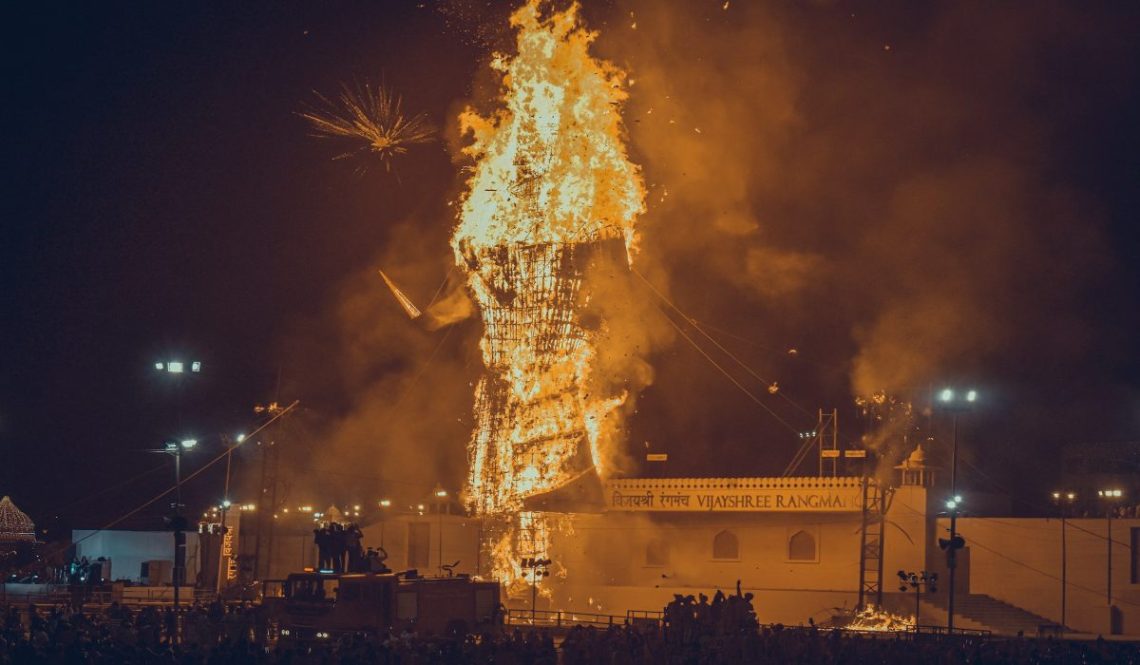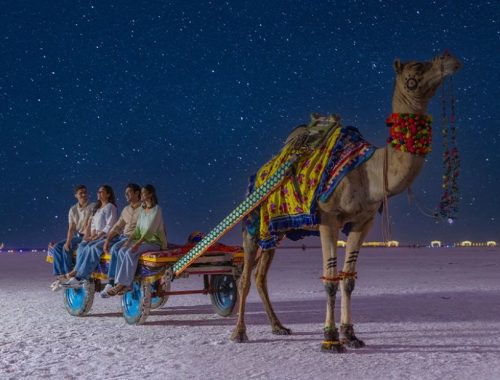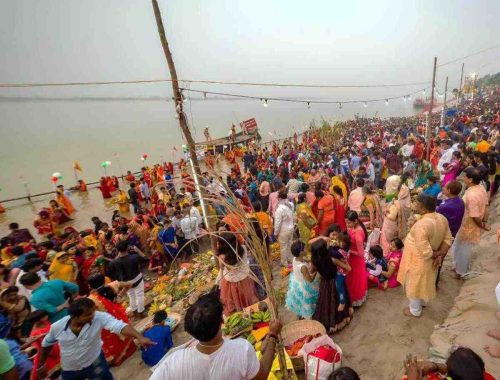
The Epic Tale of Lord Rama and Ravana: The Story Behind Dusshera
Dusshera, also called Vijayadashami, is one of the most celebrated festivals in India. It marks the victory of good over evil, honoring the day when Lord Rama defeated the demon king Ravana. This festival is rooted in the epic Ramayana, an ancient story that teaches important lessons about truth, righteousness, and the power of doing what is right. Dusshera is a day of celebration and a reminder of these values that people strive to follow in their lives.
In this blog, we will talk about the story behind Dusshera, the key events from the epic Ramayana that led to Lord Rama’s victory, and the significance of this festival. We will also explore how Dusshera is celebrated across India and the lessons we can learn from this timeless saga. Keep reading!
Also Read: Lesser-Known Navratri Rituals: Exploring India’s Rich Regional Traditions
The Story of Lord Rama and Ravana
Lord Rama, the noble prince of Ayodhya, was born to King Dasharatha and Queen Kaushalya. Renowned for his wisdom, compassion, and unwavering sense of duty, Lord Rama is held in the highest regard for his adherence to righteousness. Due to a vow made by his father, Lord Rama was exiled to the forest for 14 years. His devoted wife, Sita, and brother, Lakshman, accompanied him during this time of exile, displaying their love and commitment.
The Abduction of Sita by Ravana
During their time in the forest, the demon king Ravana, the powerful ruler of Lanka, was enchanted by Sita’s grace and beauty. In a deceitful act, Ravana orchestrated the abduction of Sita by sending a demon disguised as a golden deer to lure Lord Rama and Lakshmana away. While Sita was alone, Ravana took her to his kingdom in Lanka.
Upon learning of Sita’s abduction, Lord Rama was filled with sorrow but resolved to rescue her. He sought the help of Sugriva, the king of the vanaras (monkey clan), and Hanuman, his most devoted follower. With their support, Lord Rama discovered that Sita was being held in Lanka, and he prepared for the ultimate battle.
The Epic Battle: Lord Rama vs. Ravana
The battle between Lord Rama and Ravana was a monumental clash between good and evil. Ravana, though a mighty and learned king, had misused his power. He was granted several boons that made him nearly indestructible, with his life force stored in his navel rather than his heart. After a fierce and prolonged battle, Lord Rama, with his divine strength and wisdom, struck Ravana with an arrow in his navel, thus ending his reign of terror.
This victory is celebrated each year during Dusshera, symbolizing the triumph of dharma (righteousness) over adharma (unrighteousness).
The Significance of Dusshera
Dusshera is observed to honor Lord Rama’s victory over Ravana and to remind us of the timeless values he upheld. On this day, effigies of Ravana, his brother Kumbhakarna, and his son Meghnath are burned across the country, symbolizing the destruction of negative traits such as arrogance, ego, and greed.
In various parts of India, Dusshera also marks the conclusion of the Navratri festival, a nine-day celebration dedicated to the goddess Durga. In states like West Bengal, this day is celebrated as Bijoya Dashami, commemorating the victory of Goddess Durga over the demon Mahishasura.
Lessons from the Epic of Lord Rama and Ravana
The story of Lord Rama and Ravana offers profound lessons that continue to guide us today. Lord Rama represents the ideal person, one who is steadfast in his commitment to truth, justice, and duty. His life serves as a reminder of the importance of living with integrity and fulfilling one’s responsibilities with honor and humility.
Ravana, despite his vast knowledge and power, serves as a cautionary figure. His arrogance, pride, and desire for Sita led to his downfall. His story reminds us that unchecked ambition and disregard for righteousness can have devastating consequences.
Takeaway
Dusshera is more than just a festival; it is a celebration of the enduring values of righteousness, truth, and justice. The epic tale of Lord Rama’s victory over Ravana illustrates that no matter how powerful evil may appear, it will always be defeated by good. As we observe Dusshera and burn the effigies of Ravana, we are reminded to strive for virtue, humility, and the path of dharma in our own lives. This ancient tale continues to inspire, guiding us toward a life of truth, compassion, and righteousness.
Khushi Jha
I am Khushi Jha, a proud alumna of Delhi University with a degree in History and Political Science. My fascination with the events that have shaped our world drives me every day. Currently, I am pursuing my Master’s in History, diving even deeper into global dynamics and the incredible heritage of India. I firmly believe that India's rich heritage deserves wider recognition. I strive to bring its stories to the forefront, ensuring they are celebrated and acknowledged on a global stage. I have written extensively across various niches, including fashion, health, lifestyle, real estate, hospitality, amongst others. In my free time, you’ll find me immersed in books, both fiction and non-fiction, or simply enjoying some much-needed rest.
You May Also Like

Rann Utsav 2025-26: Complete Guide to Gujarat’s White Desert Festival
October 15, 2025
Chhath Puja 2025: Rivers, Rituals & the Sunrise That Connects Generations
October 22, 2025


